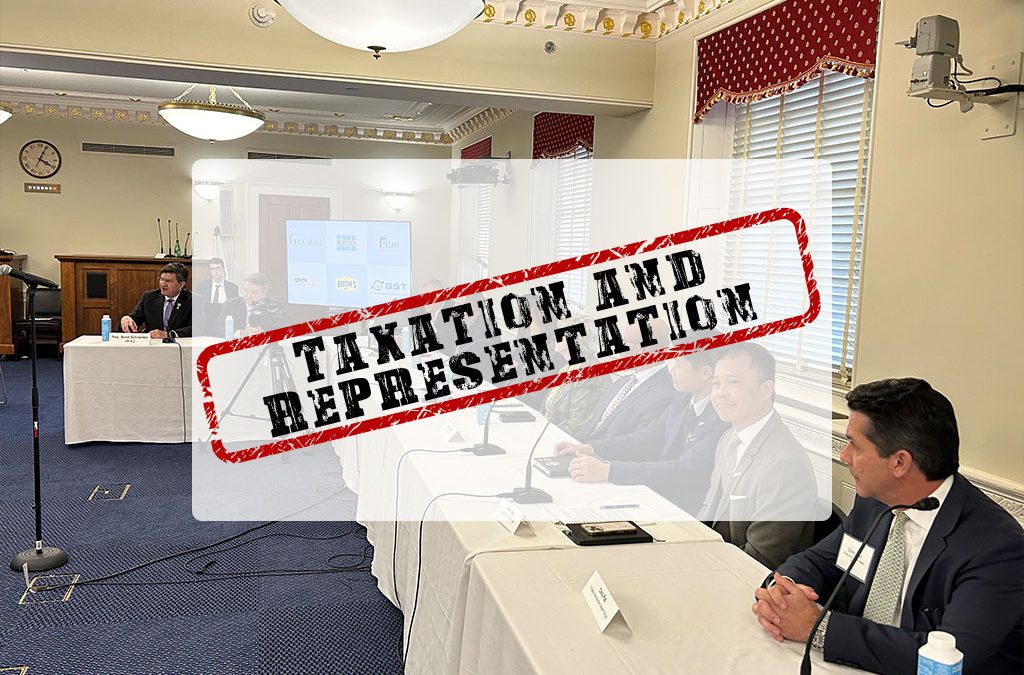Take the 2026 Family-Owned Business Survey
Tax Bill Update – Package Remains in Limbo: Almost two months after the Tax Relief for American Families and Workers Act (H.R. 7024) passed the House with an overwhelming 357-70 vote, committee leaders are still considering the process for advancing the bill with or without amendments. Senate Finance Committee Ranking Member Mike Crapo (R-ID) has laid out some of issues in the bill but suggested others may still be identified, while noting there is no proposed timeline for wrapping up negotiations. Chairman Ron Wyden (D-OR) has maintained that Republicans’ demands are an “amorphous smorgasbord” of proposals and is reportedly waiting for a clear list of Republicans’ priorities. With the current stalemate within Finance Committee leadership, eyes will be on Senate Majority Leader Chuck Schumer (D-NY), who has reportedly expressed interest in moving the bill forward with or without amendments and may choose to bring the package, as it currently stands, before the Senate to force a conclusion to the ongoing amendment debate.
Government Funding Update – First Appropriations Package Will Fund Certain Departments and Agencies Through Sept. 30: On March 9, President Biden signed a $459 billion six-bill package funding major areas of the government (Military Construction-VA, Agriculture-FDA, Commerce-Justice-Science, Transportation-HUD, Interior-Environment and Energy-Water) for the remainder of fiscal year (FY) 2024. The bill received bipartisan approval in both chambers of Congress, with the House passing the bill under suspension of the rules in a 339-85 vote on March 6, and the Senate following with a 75-22 vote on March 8.
Ways and Means Pillar One Hearing Exposes Policy Rift: On March 7, the House Ways and Means Subcommittee on Tax held a hearing titled “OECD Pillar 1: Ensuring the Biden Administration Puts Americans First.” The hearing explored the recent proliferation of digital services taxes (DSTs) pending in a number of countries, which will disproportionately increase tax burdens on U.S. multinational businesses and may lead to global tax instability if not mitigated, as the Organisation for Economic Co-operation and Development (OECD) Pillar One proposal aims to do. Committee members on both sides of the aisle agreed on the detrimental effects DSTs would have on U.S. multinationals, but were divided on whether the correct course of action is to continue negotiations with the OECD on Pillar One or to walk away from discussions altogether.
Treasury Department Finalizes Direct Pay for IRA Tax Credits: On March 5, the Treasury Department finalized regulations that would expand the accessibility of energy tax credits to tax-exempt entities previously unable to utilize them. Using Direct Pay (also known as Elective Payment), state, local and tribal governments along with nonprofit organizations can elect to receive direct payment of 12 energy tax credits in lieu of a nonrefundable credit, which taxable entities would otherwise claim against their federal tax liability. The Treasury Department and the Internal Revenue Service (IRS) also issued proposed regulations to provide clarity and flexibility for qualifying entities that co-own clean energy projects to provide additional flexibility in using the elective payment option. The proposed rules would allow energy investments to be made “through a noncorporate entity, rather than requiring direct co-ownership of the property or facility by the applicable entity” and ensure that “multi-year power purchase agreements would not violate the requirements to elect out of partnership tax treatment.” The comment period on the proposed regulations will be open for 60 days.

About Brownstein Hyatt Farber Schreck
Brownstein Hyatt Farber Schreck is a unique law firm. Walk into any of our offices and you’ll immediately recognize a different type of energy. Complacency doesn’t have a place here. Flexibility and inspiration do. Our culture and enthusiasm allow our attorneys, policy consultants and legal staff to stay ahead of our clients’ needs and provide them with the resources they require to meet their business objectives.
We hope you've enjoyed this article. While you're here, we have a small favor to ask...
As we prepare for what promises to be a pivotal year for America, we're asking you to consider becoming a member.
The need for fact-based reporting of issues important to family owned businesses and protecting a lifetime of savings has never been greater. Now more than ever, successful families and family owned businesses are under fire. That's why Family Enterprise USA is passionately working to increase the awareness of issues important to family owned businesses built on hard work, while continuing to strengthen our presence on Capitol Hill. The issues we fight for or against with Congress in Washington DC include high income tax rates, possible elimination of valuation discounts, increase in capital gains tax, enactment of a wealth tax, and the continued burden of the gift tax, estate tax and generation skipping tax.
Family Enterprise USA promotes generationally owned family business creation, growth, viability, and sustainability by advocating for family businesses and their lifetime of savings with Congress in Washington DC. Since 2007, Family Enterprise USA has represented and celebrated all sizes, professions and industries of family-owned enterprises and multi-generational employers. It is a bi-partisan 501.c3 organization. Family foundations can donate.
#incometax #CapitalGainsTax #R&DExpensing #DontPunishSuccess #GrantorTrusts #StepUpinBasis #likeKindExchanges #AcceleratedDepreciation #EstateTax #Deathtax #wealthtax #taxLegislation #CongressionalCaucus #incometaxrates #repealestatetax #AdvocatingForFamilyBusinesses #FamilyOwnedBusiness #WomenOwnedBusiness @FamilyEnterpriseUSA #FamilyEnterpriseUSA #FEUSA

